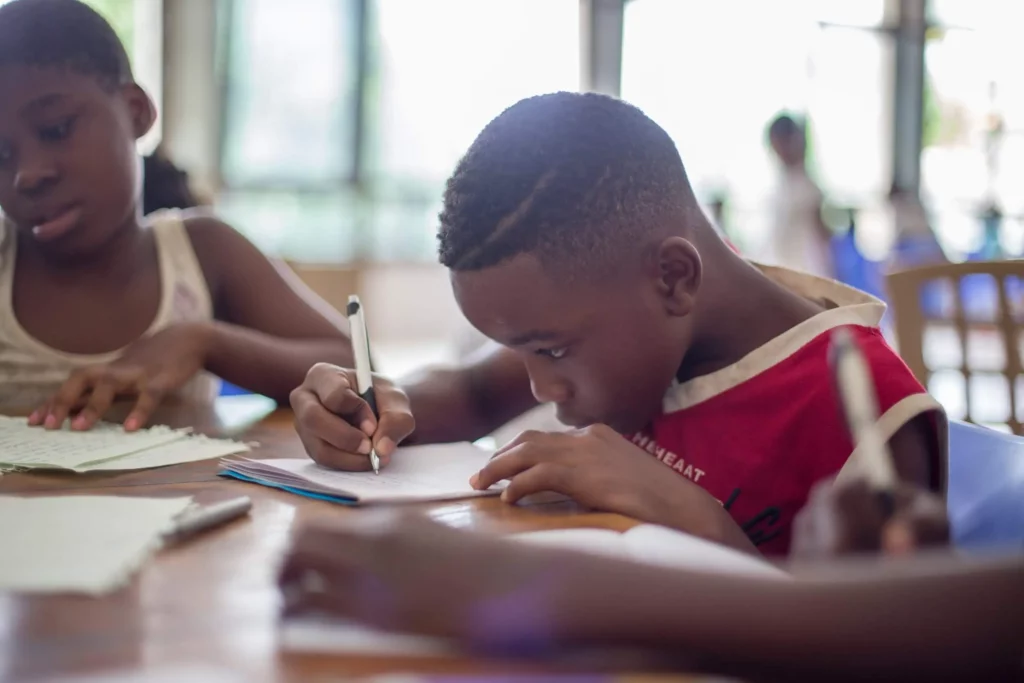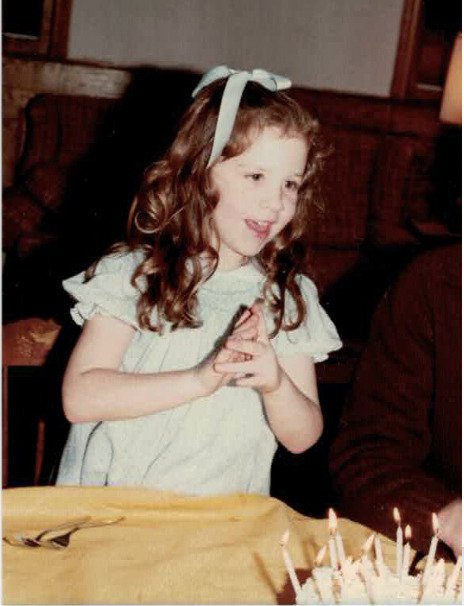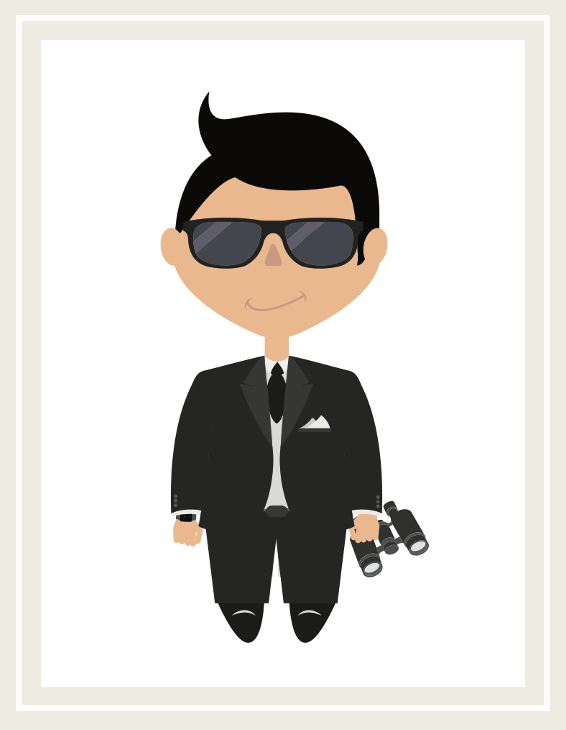How Can I Get Through To My Kid That He Has To Stop Arguing With His Teachers

By Caroline Maguire, M.Ed. PCC
You just received another text from your son’s teacher. He’s in trouble again for his outbursts and continuing to argue with his teacher. You’ve had numerous conversations with David, pleading with him to stop arguing, but nothing changes.
When he gets home, you ask him about the encounter, and he seems to have no idea that he has been rude. He tells you, “I wasn’t talking out of turn; the teacher just doesn’t get me.” As a parent this makes you wonder if children with ADHD are more self-centered than other children. Of course not, however, some of the characteristics children with ADHD have can give the appearance of being rude and insensitive. Open-ended questions may be the answer to get to the bottom of your child’s actions and behaviors.
He Won’t Stop Arguing
Some children with ADHD don’t have the perspective or ability to see how others interpret their actions and behaviors. Take David for example – At first glance, you would see him as a bright elementary school boy. He looks easy going and fun, but can’t stop butting heads with his teachers. He won’t stop arguing. It doesn’t matter what the topic is, David is right, and he will argue and debate it until he gets in trouble.
Children like David don’t have the capacity to understand how they come across when interacting with teachers and other adults. Their intentions are good, but they don’t really know how to tune in and “walk in the other person’s shoes.”
When feeling bored, overwhelmed, hungry, tired or face a self-regulating challenge, ADHD children like David can unintentionally forget social rules and without meaning to, come across as uncaring and bad mannered. They struggle with interpreting social cues, but with proper support, they CAN work to develop a better perspective.
Taking other people’s perspective and understanding that other people have an inner emotional life and being able to detect that point of view is known as Theory of Mind. When someone has Theory of Mind it means they can detect the perspective, emotions and understand what motivates others.
Having Theory of Mind means understanding that other people’s thoughts and feelings may be different from your own. How many times have you heard someone tell you, “Think before you speak?” Children who do not have the ability to read the minds of others do not hear or notice that their tone, misguided humor, continual monologue, or how abrupt subject changes may alienate others. Parents are baffled as to what to do.
Don’t Interpret Social Cues
When children don’t stop arguing, it is often because they do not easily interpret social cues and tune into the mental states (emotions) of others. They misread behavior and therefore do not understand how their physical and verbal actions affect other people. Teaching children Theory of Mind means helping the ADHD child consider others’ point of view, perspective, desires, motives, and intentions.
Children with Theory of Mind Can:
· Interpret how their teacher and friends feel
· Decode the information in the environment
· Envision someone else’s reaction to a behavior or event
· Attribute beliefs and desires to someone
· Walk in someone else’s shoes
· Predict actions based on a person’s knowledge
· Understand false beliefs
· Recognize what information other people know
· Uncover the speaker’s intentions and inferred message
· Anticipate that one’s actions provoke reactions from other people
To teach Theory of Mind effectively, parents need to understand the open-ended questions technique.
Open-ended questions are for parents who witness the sharp tones and behavior of their children – and are looking for a sound way to develop Theory of Mind. This style of questioning allows the parent to use a type of coaching communication technique that leads the child through a process to look at the feelings of others.
It provides the child with perspective to be able to examine his own behavior and choices. Children can learn how to alter their behavior and using open-ended questions is one way to help those who lack Theory of Mind to create a greater awareness of the mindset of others.
This coaching technique also eliminates a lot of unnecessary friction, for example, rather than telling David, “You need to stop arguing with your teachers,” think about asking, “How do you think your teacher feels when you speak out of turn and are always arguing with her?” This coaching technique will allow the child to consider that other people have thoughts about his behavior and that his behavior can negatively or positively affect others – this builds self-awareness and Theory of Mind.
With proper support, parents can learn to effectively use the open-ended questions technique, initially taught by ADHD professionals. This is not a cure, there is no magic here, but used consistently, it does show a sustained improvement in the child’s Theory of Mind.
How can you use open-ended questions with your child to get him to stop arguing?
Step 1:
Open-ended questions use the words who, what, when, where, how, and why. They ask, rather than tell. The process looks like this:
a) David, who thinks all facts are worth arguing about, even with adults, and often will go so far as to correct other adults.
b) Ask David, “How do you think I feel when you correct me?” It can be beneficial to have him look at your face and interpret what you are currently feeling.
c) Then, no matter what the answer is, even if it’s a shrug and an, “I don’t know,” continue to ask him, “What do you think the appropriate behavior should have been?”
This begins to help the child think about what the unspoken social rules were and what they are expected to do in the future. The questions help the child with ADHD pause and reflect on other people’s state of mind. In the minivan or on the go continue to ask him questions when his conversations present as forgetting other people’s feelings.
Questions can center on:
· What do other people feel?
· What is the reaction to their behavior?
· What did the other people’s facial expression tell them about their feelings?
· What was the behavior that would make people feel positive about them?
· What was the appropriate behavior in the situation?
The open-ended question coaching technique walks the ADHD child through interpreting other people’s point of view to examine how their actions and behaviors affect others. Self-regulation and other coping skills may need to be practiced to help children put their best foot forward, but the key is to help the child consider how they come across to those in every day interactions.
Step 2:
On an ongoing basis and on the spot when the child is rude or dismissive, begin to ask him open-ended questions that allow him to reflect on his actions and how they might make other people feel.
Additional questions to insight conversation can include:
• How do you think your classmates feel when you can’t stop arguing?
• What do you think happens when you don’t show the teacher respect?
• What were the circumstances and how did you adjust?
• What were the typical behaviors in that environment?
• What did you notice about the teacher?
• What could you do when you are bored?
• What happens if your tone is dismissive?
• What do you think your peers think when you are bored disrupt class?
The main questions center around helping the ADHD child who struggles to mind read, to consider the perspective or point of view of other people. The idea is to ask questions! Open-ended questions help the ADHD child learn to consider what is typical or appropriate behavior in that situation. It also provides a path to better observe the people, actions, body language, environment and social rules around the child.
The reciprocal relationship between tuning into other people’s perspective or mental state and how those people treat us in return is a game changer. ADHD children, who can’t stop arguing, and therefore tend to dominate conversations, can learn to be able to interpret and consider the feelings of others. It’s a journey, and consistency is the key. Parents should find comfort in knowing that all ADHD children benefit from patient and nurturing parents and the open-ended questions technique is well suited to parents who wish to help their children turn social struggles into positive outcomes.
Become a Social Observer
To help your child stop arguing, help him become a social spy and let him see it first hand. Social spies observe people in different settings and then record their observations about social cues including, vocal volume, tone, eye contact, physical presence, interrupting, arguing, etc.
· Build awareness
· Go to a public place, hotel lobby, book store, mall
· Watch and notice the social cues
· Identify what unspoken rules the environment dictates
· Create an image of positive social behavior to navigate toward
The Polite Pretend
Many children with ADHD can quickly become bored inside the classroom, leading to outbursts or just checking out altogether. Some will provoke and argue with the teacher to be funny or get a reaction from friends. Rather than lecturing your child, talk with him about the problem. Start by saying, “I’ve noticed that you sometimes struggle to stop arguing with your teacher and I understand you don’t mean to be disrespectful.” Ask him what happened in the specific situation.
Talk to him about things that do not interest him and this dilemma of being polite. Remain neutral and calmly discuss why pretending to be polite is necessary. Rather than just telling him that he has to do this, use questions to help him reflect such as:
· What he can do during a conversation when he feels bored or when he’s too tired to participate in the conversation?
· What happens in the conversation when her tone becomes dismissive and argumentative?
· What are the benefits of a polite pretend?
Reading the Room
In each environment, there are expectations and unspoken rules. To present the best face to the world, you have to decipher those expectations by reading the room. Help your child understand that how he behaves sends messages to the world, which ultimately impacts how he is received.
Any social situation is just a problem to be solved. If you build those skills, your child will have the opportunity to improve his social awareness, stop arguing, and develop better relationships with his teachers.
Social Skills Deeper Dive
More actionable advice, exercises and videos can be found in the Store
https://carolinemaguireauthor.com/product/how-to-coach-your-child-bundle/
How to Coach Your Child – Kids need good role models. Skills like listening and communication are critical. This exclusive program for parents teaches how to coach your kids for life.
Adults with ADHD Social Skills Training: How to Get Along with Everyone – 2-Part Seminar with Caroline Maguire – Starting December 7, 2021
Rusty Social Skills Bundle – Everything you need to help students return to the classroom for the development of critical social skills.
Coaching Conversations Video Course – How to use the lessons in Why Will No One Play with Me? in everyday life using real people and real scenarios
From “Hi” to a Full Conversation – How to adapt conversation starters to initiate small talk.
Joining a group Infographic – Make joining a group less intimidating – and more fun!
Building a Conversation Infographic – Learn how to engage in reciprocal give-and-take
Steps for Joining a Group Video – Step by step details to comfortably and successfully join a group
How to Read the Room as an Adult – Managing perceptions and engaging successfully




